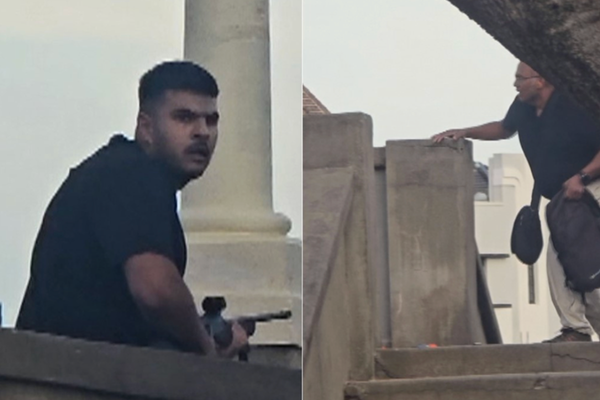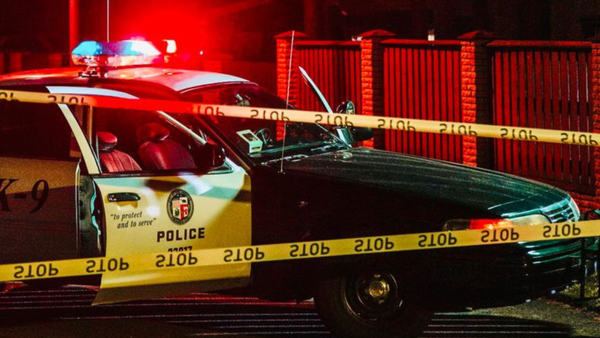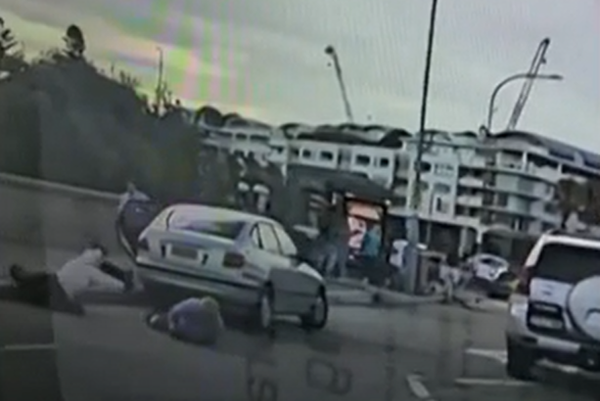
Republican Florida Gov. Ron DeSantis signed a bill into law today that will prohibit bystanders from getting too close to police and other first responders.
The legislation, Senate Bill 184, makes it a second-degree misdemeanor to approach within 25 feet of a first responder after receiving a verbal warning to stay away. The law includes a requirement of intent to interfere, threaten, or harass the first responder who is in the course of his duties.
It also prohibits harassment of first responders. The law defines harassment as conduct "which intentionally causes substantial emotional distress in that first responder and serves no legitimate purpose."
Similar laws with smaller buffer zones have been struck down by courts in other states, but DeSantis portrayed the law as part of Florida's pro–law enforcement atmosphere.
"I am proud to support the men and women of law enforcement throughout the state," DeSantis said at the bill signing, where he also signed legislation limiting the power of civilian police oversight boards. "Today's legislation will ensure law enforcement can do their jobs without the threat of harassment. While blue states vilify and defund the police, Florida will continue to be the friendliest state in the nation towards our law enforcement community."
State legislators began introducing bills restricting the ability to film the police in places like South Carolina and Florida as backlash to the George Floyd protests of 2020. Supporters of the legislation, such as police unions, argue that officers shouldn't have to deal with bystanders getting in their faces when they're performing arrests or investigations.
However, the right to observe and film police has been upheld by multiple federal appeals courts as a fundamental First Amendment activity, and civil liberties groups and press organizations argue that such laws are overly broad and chill the free speech rights of citizens and reporters.
Last July, a federal judge struck down an Arizona law restricting how closely people may film police, ruling that the law violates a core First Amendment right to record law enforcement officers.
U.S. District Judge for the District of Arizona John J. Tuchi wrote that the Arizona law, which made it a misdemeanor offense to film a police officer within 8 feet after receiving a verbal warning, "prohibits or chills a substantial amount of First Amendment protected activity and is unnecessary to prevent interference with police officers given other Arizona laws in effect."
Florida press freedom groups find similar faults with the new law.
"These are highly subjective terms which we believe will have a chilling effect on journalists' and citizens' First Amendment rights to observe and record the activities of responders at work," Bobby Block, executive director of Florida's First Amendment Foundation, told the Orlando Sentinel. "Similar laws have been struck down by the courts as being unconstitutional for this reason."
The post Ron DeSantis Signs Florida Bill Limiting How Close Bystanders Can Get to Police appeared first on Reason.com.







